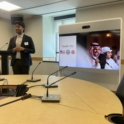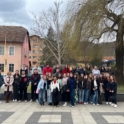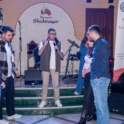Abdulaziz reflects on the highlights from serving as a mentor for CEW.
STORIES
YES Alumni Grant: Cultivating Peace, Fostering Harmony
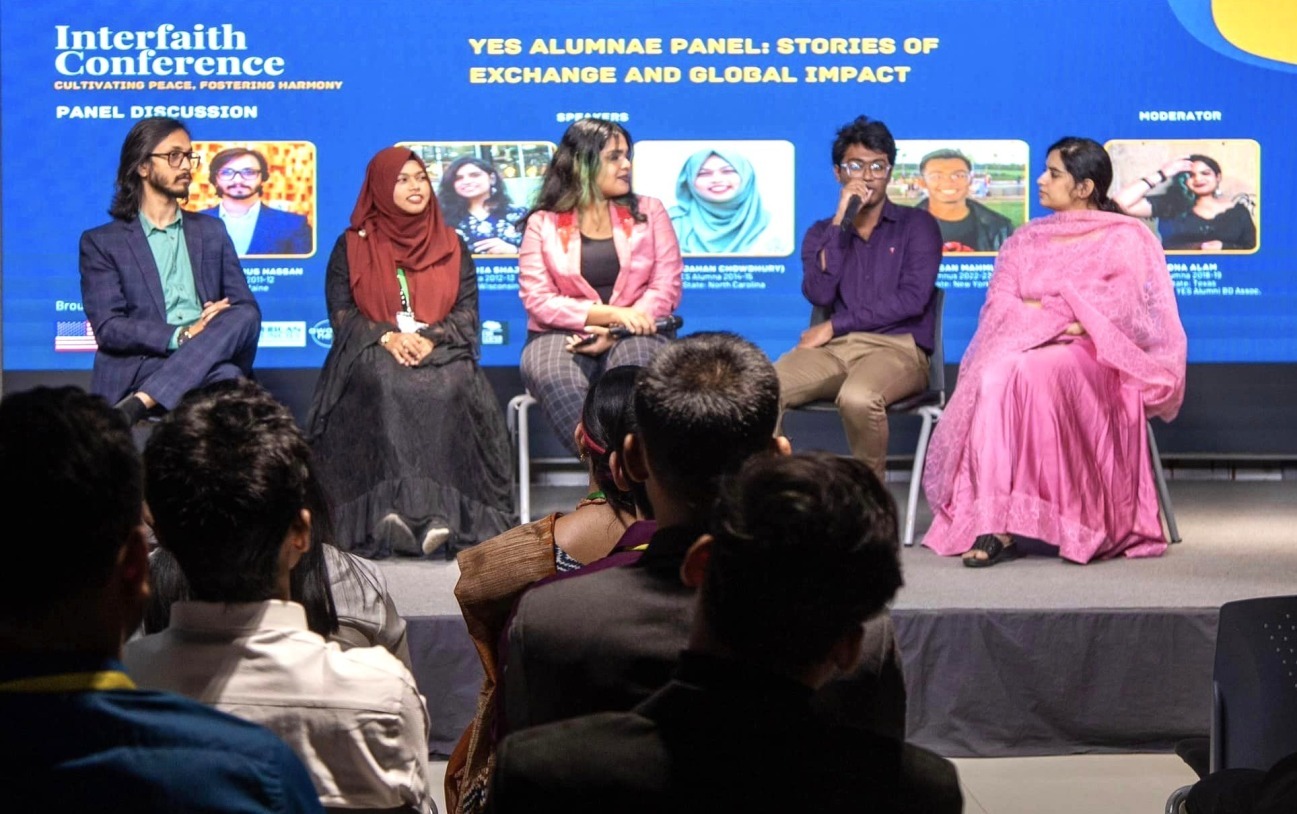
By Shomy Hasan Chowdhury (YES 2011-2012, Bangladesh, placed by PAX in Cheboygan, MI)
Over a decade ago, my journey with the YES program began. This experience has profoundly influenced my personal and professional trajectory. It provided me with invaluable opportunities to expand my mindset through exposure to diversity and community service. In essence, the YES program has been instrumental in shaping me into a confident, resilient, and compassionate leader.
After my exchange year, I remained active as an alumna. I received two YES Alumni Grants. The first one was in Bangladesh, where I taught high school students about human rights and democracy. The second, Score Your Goals, was in Malaysia, where I worked with university students on the UN SDGs goals for a better world. These experiences inspired me to apply for a third grant.
In today's world, youth encounter many challenges, from cyber-bullying to religious intolerance. Recognizing the need for empathy and understanding, I organized the Cultivating Peace, Fostering Harmony conference in Dhaka.
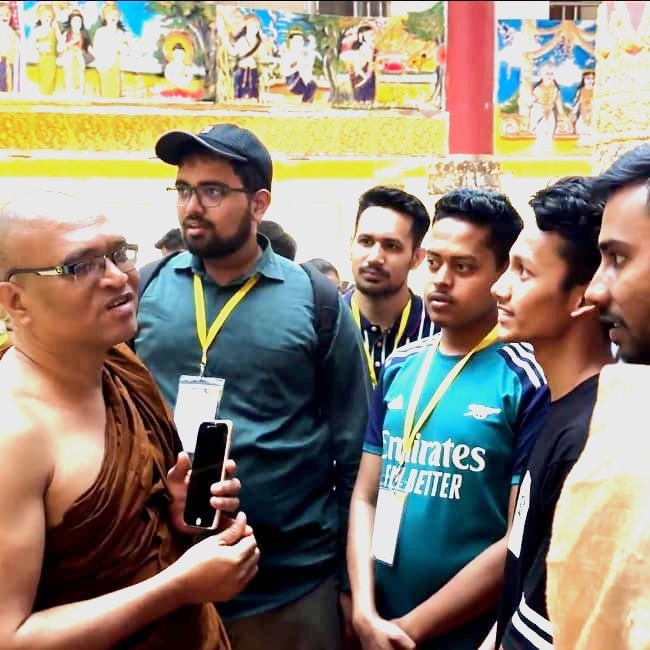
In Bangladeshi schools, students often lack exposure to different religions, leading to misconceptions and discrimination, and resulting in tension and conflict. We aimed to challenge these stereotypes and promote tolerance and respect among youth.
The five-day interfaith conference, held at the U.S. Embassy’s American Space, the Edward M. Kennedy (EMK) Center, was a masterclass in promoting religious harmony, designed to immerse 50 young participants from diverse faith backgrounds into the tapestry of different religious traditions. The conference featured enlightening keynotes, dynamic discussions, and site visits to a mosque, church, temple, and monastery, enabling these potential peace ambassadors to explore and appreciate the complex mosaic of religious diversity. The conference not only fostered dialogue but equipped these young individuals with the insights and tools necessary to advocate for interfaith understanding within their communities.
The conference kicked off with a keynote address by Imam Mohamad Bashar Arafat from the Civilizations Exchange and Cooperation Foundation. Participants learned more about the roots of Christianity and Islam from esteemed speakers, Father Paul Gomes and Imam Fahimur Rahman. A session on compassionate communication was then led by interfaith scholar Urmi Chanda, joining us from India.
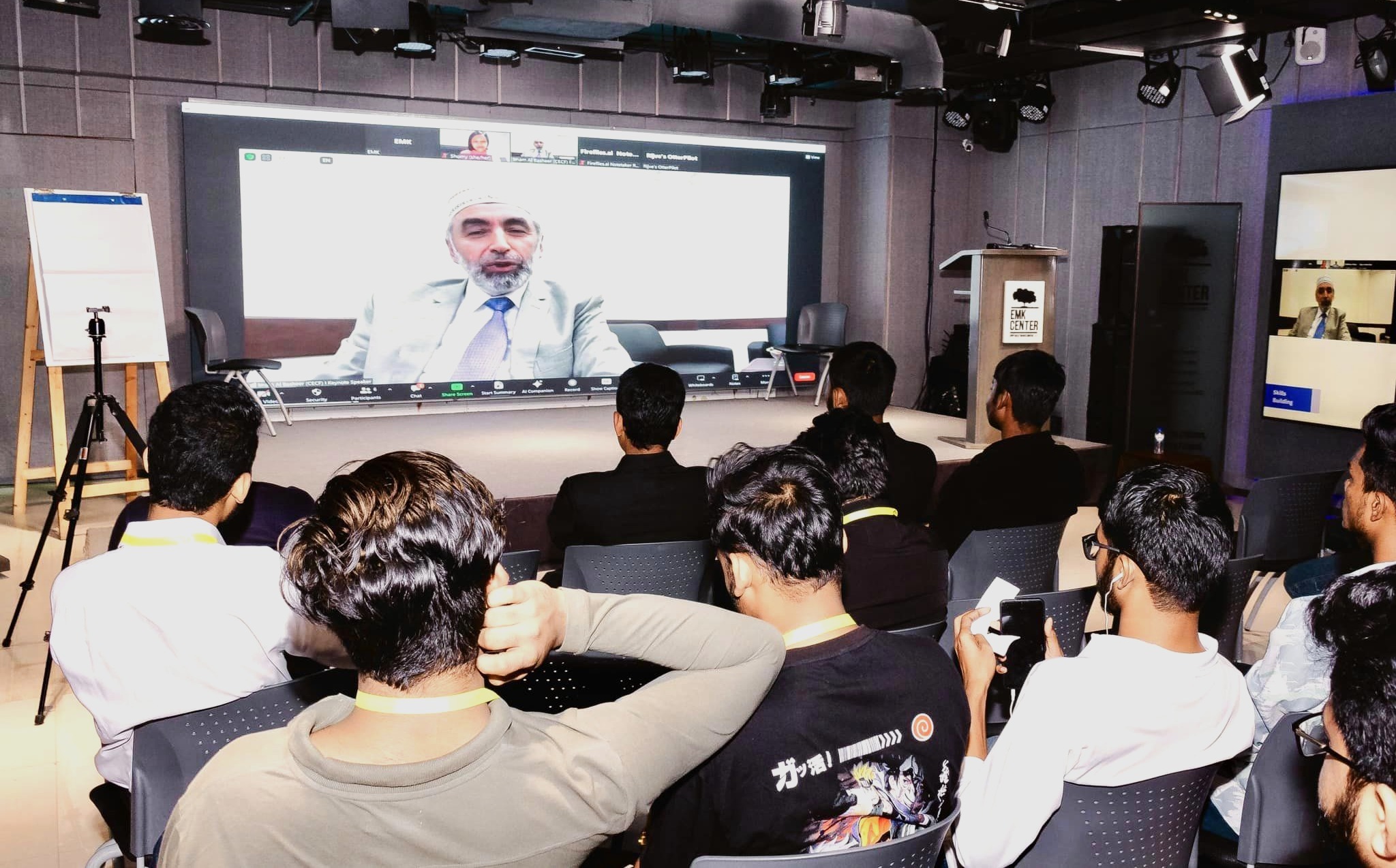
The second day began with the insightful panel discussion, Tolerance: Diving Deeper into the State of the World. Expert speakers from the U.S., U.K., Jordan, Albania, and the Netherlands shared diverse perspectives on interfaith dialogue. Later, participants attended sessions on Buddhism and Hinduism, led by distinguished speakers Bhikkhu Sunandapriya and Bijoy Krisno, respectively. Adam Soltani, Executive Director of CAIR Oklahoma, a nonprofit grassroots civil rights and advocacy group., delivered a “lightning talk,” adding depth to our discussions. Additionally, a guided exercise on privilege heightened our awareness of social dynamics. Wrapping up the day, I led a session on character-driven leadership and the role of youth in achieving the Sustainable Development Goals.
The highlight of the third day was site visits to a mosque and a church. And on the fourth day, participants engaged in site visits to Hindu and Buddhist temples. Through guided tours and reflective discussions, participants gained firsthand insight into different spiritual rituals and teachings. The closing ceremony was attended by a special guest from the Public Diplomacy Section of the U.S. Embassy in Dhaka, Director of Public Engagement Sharlina Hussain-Morgan.
After the conference, participants were encouraged to host knowledge-sharing sessions in their educational institutions and communities, amplifying the project's impact to at least 150 more people. In a post-conference survey, 95% of respondents committed to sharing and practicing what they learned, with an equal percentage reporting that they felt more confident using compassionate communication. Feedback from participants was overwhelmingly positive, and they noted they would like to see similar initiatives in the future.
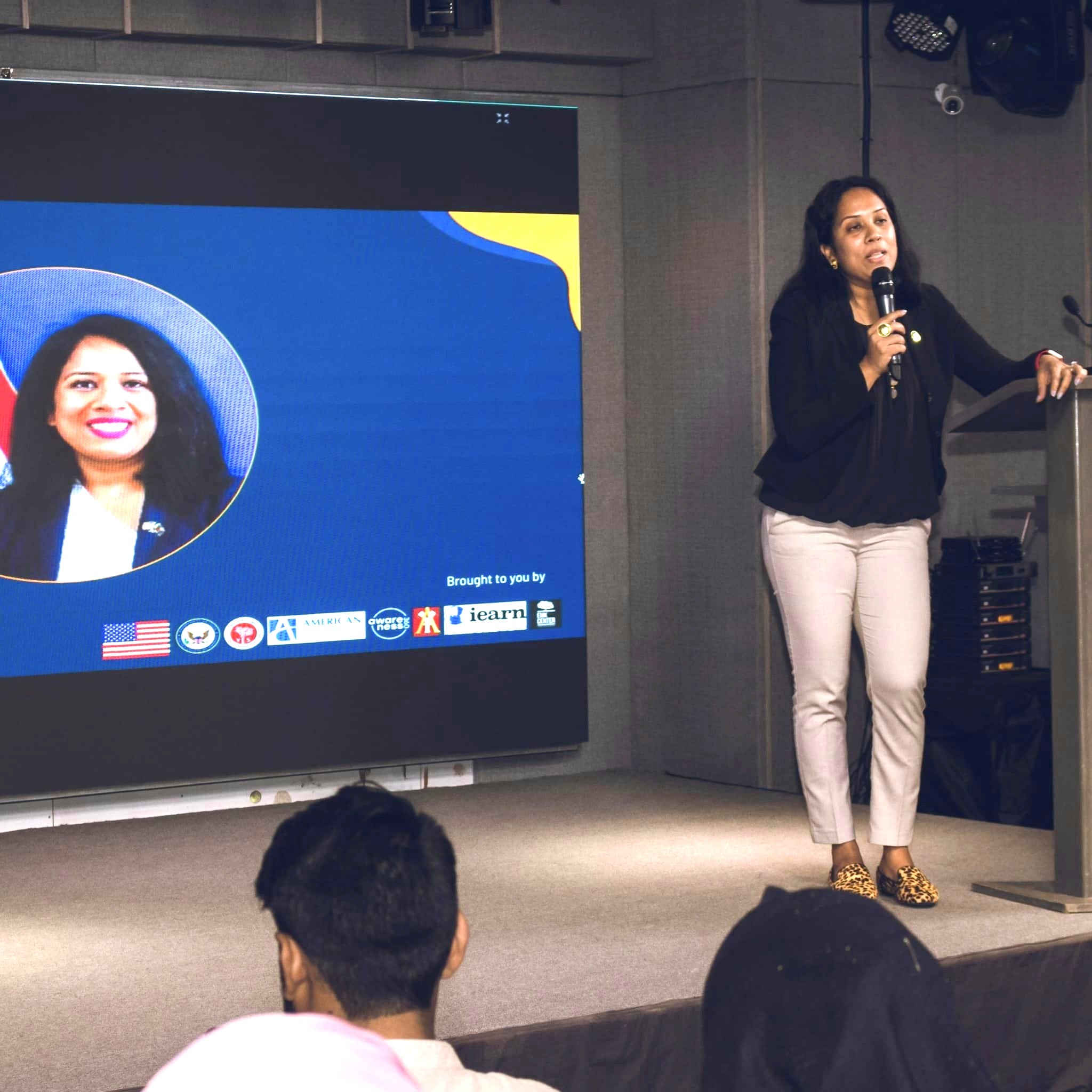
The project served as a platform for reconnecting with people from my exchange year, including a YES alumna from Albania and my former pastor from Cheboygan. The fact that the keynote speaker was an imam who guided me on how to navigate religious diversity during my arrival orientation in Washington DC, highlighted the interconnectedness of past and present experiences. Alumni volunteers from different cohorts added to the richness of the project. I am profoundly grateful for the opportunity to foster connections and unite various facets of my YES journey through this endeavor.
I am thankful to everyone involved with this project, particularly my fellow alumna Sadia Abdullah ’14, who was the in-person lead for the project; core team members Rijve Arefin, Simin Hasan Chowdhury ’21, and Amimul Ehsan Khan; and all the volunteers, speakers, guests, and participants. Massive shout-out to our organizing partner, Awareness 360, the EMK Center, the YES Alumni Bangladesh Association, iEARN-Bangladesh, American Councils for International Education, and the YES program. I deeply appreciate the U.S. Department of State, Bureau of Educational and Cultural Affairs for sponsoring this project and investing in youth-led initiatives.
Looking ahead, my long-term hope for this initiative is to see its impact ripple throughout Bangladeshi society. By empowering youth to promote interfaith harmony and understanding, we can pave the way for a more inclusive and harmonious future.
Sadia Abdullah (YES 2013-2014, Bangladesh, placed by AFS in Camarillo, CA)
Simin Hasan Chowdhury (YES 2020-2021, Bangladesh, placed virtually by IRIS)


